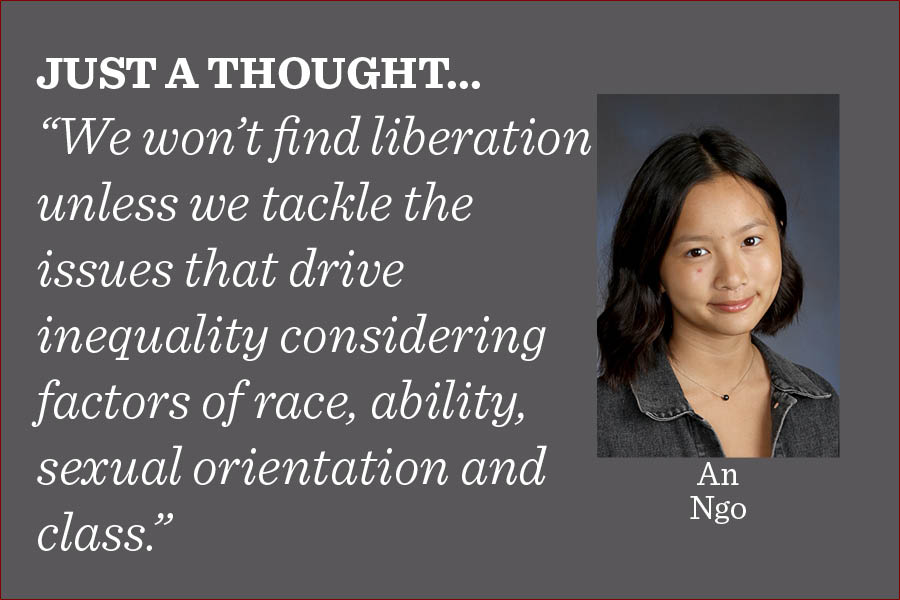Choice feminism fails to address issues that contribute to women quitting their jobs
Midway staff
Choice feminism stops us from thinking critically about what liberation really looks like, writes assistant editor An Ngo.
March 16, 2021
American women have lost a disproportionate number of jobs due to the pandemic, having lost 5.4 million jobs since last February, while men have lost 4.4 million jobs.
The burdening of job losses on women perfectly illustrates why choice feminism, an ideology that has risen in popularity in recent years and focuses on celebrating choice, fails to address the underlying issues that have contributed to women quitting their jobs.
Through the lens of choice feminism, it would be an inherently feminist action for a woman to choose to stay home for her children. The issue with this is that it doesn’t consider how a lack of public or affordable childcare, the gender pay gap, occupational stratification and cultural beliefs about gender roles have all but eliminated her power to choose.
Furthermore, choice feminism fails to address how some women have more autonomy in making their choices than others. While white women have made significant recoveries in employment rates, women of color have not only been hit the hardest but are making slower job gains.
President Joe Biden’s coronavirus relief bill, which includes a $3,000 child tax credit and direct payments to children, is a step in helping women rejoin the workforce. Steps like these that help tackle economic inequality and the burden of child care may be a starting point for a fundamental and institutional dismantling of the inequities that existed before the pandemic.
Choice feminism stops us from thinking critically about what liberation really looks like. We won’t find liberation unless we tackle the issues that drive inequality considering factors of race, ability, sexual orientation and class.




























































